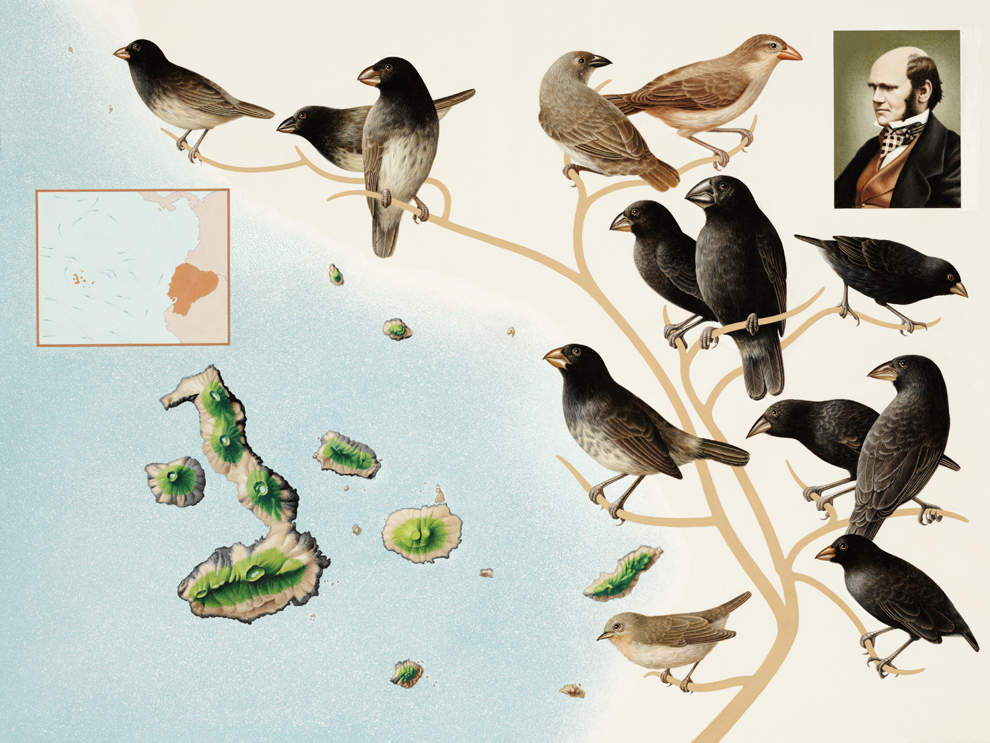After almost two decades of observing Galápagos finches, Flinders University bird expert Professor Sonia Kleindorfer and Macquarie University biological sciences researcher Dr Rachael Dudaniec have released a new paper summarising the impacts of the lethal introduced fly parasite Philornis downsi in the Pacific Ocean islands. “The parasite, which was accidentally introduced into the Galápagos Islands circa 1960s, is now prevalent and increasing in number and the host finches are dying, with many threatened and locally extinct populations,” says Professor Kleindorfer, who leads Flinders’ Research Centre for Climate Adaptation and Animal Behaviour. The long-term study by the Australian scientists has focused on the relationship between the invasive parasite and Darwin’s finches, and documents how it changed the evolutionary trajectory of these species in their struggle to co-evolve or perish in an epic battle of nature. The parasitic fly, which may have been introduced by humans, is estimated to kill just over half of Darwin’s finch nestlings by consuming the blood and tissues of the developing birds.
The geographically remote Galápagos Islands became naturalist Charles Darwin’s ‘cradle of evolutionary thought’ after his 1835 visit. The Darwinian theory of evolution and natural selection was inspired by studying the migratory finches, mockingbirds, tortoises and other animals on the islands.
The paper acknowledged the assistance of the Galápagos National Park, Charles Darwin Foundation (which supports the Philornis downsi Action Plan), Charles Darwin Research Station, Australian Research Council, Rufford Small Grant Foundation, Mohamed bin Zayed Species Conservation Fund, Max Planck Institute for Ornithology, Royal Society for the Protection of Birds Birdfair, Earthwatch Institute, Galápagos Conservation Fund, Australian Federation of University Women (SA) and field volunteers.
Source:
InDaily Adelaide's independent news, October 5, 2016
http://indaily.com.au/news/science-and-tech/2016/10/05/animal-scientist…

- Login om te reageren
